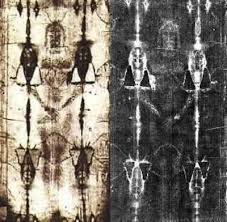 The first results from Nasa's Interstellar Boundary Explorer (Ibex) spacecraft have shown unexpected features at our Solar System's edge.
The first results from Nasa's Interstellar Boundary Explorer (Ibex) spacecraft have shown unexpected features at our Solar System's edge.
Ibex was launched nearly one year ago to map the heliosphere, the region of space defined by the extent of our Sun's solar wind. Ibex's first glimpses show that the heliosphere is not shaped as many astronomers have believed. A series of papers in the journal Science outlines the results.
Glimpses of Solar System's edge
Smithsonian to Open Hall Dedicated to Story of Human Evolution
 The National Museum of Natural History announced Wednesday that it is dedicating a new hall to the story of human evolution, giving emphasis not only to how we became humans but how changes in the natural world affected human development.
The National Museum of Natural History announced Wednesday that it is dedicating a new hall to the story of human evolution, giving emphasis not only to how we became humans but how changes in the natural world affected human development.
The Hall of Human Origins, tracing a 6 million-year history, is scheduled to open March 17 -- 100 years to the day that the museum opened. "Humans evolved over millions of years in response to a changing world," said Rick Potts, the Smithsonian's director of the Human Origins Program and an internationally known anthropologist.
Italian scientists claim to debunk Shroud of Turin
 Scientists have reproduced the Shroud of Turin— revered as the cloth that covered Jesus in the tomb — and say the experiment proves the relic was man-made, a group of Italian debunkers claimed Monday.
Scientists have reproduced the Shroud of Turin— revered as the cloth that covered Jesus in the tomb — and say the experiment proves the relic was man-made, a group of Italian debunkers claimed Monday.
The shroud bears the figure of a crucified man, complete with blood seeping out of nailed hands and feet, and believers say Christ's image was recorded on the linen fibers at the time of his resurrection.
Herschel Space Observatory scans hidden Milky Way
 A remarkable view of our Galaxy has been obtained by Europe's billion-euro Herschel Space Observatory. The telescope was put in a special scanning mode to map a patch of sky.
A remarkable view of our Galaxy has been obtained by Europe's billion-euro Herschel Space Observatory. The telescope was put in a special scanning mode to map a patch of sky.
The images reveal in exquisite detail the dense, contorted clouds of cold gas that are collapsing in on themselves to form new stars. Herschel, which has the largest mirror ever put on an orbiting telescope, was launched in May as a flagship mission of the European Space Agency.
Fossil finds extend human story
 An ancient human-like creature that may be a direct ancestor to our species has been described by researchers. The assessment of the 4.4-million-year-old animal called Ardipithecus ramidus is reported in the journal Science.
An ancient human-like creature that may be a direct ancestor to our species has been described by researchers. The assessment of the 4.4-million-year-old animal called Ardipithecus ramidus is reported in the journal Science.
Even if it is not on the direct line to us, it offers new insights into how we evolved from the common ancestor we share with chimps, the team says. Fossils of A. ramidus were first found in Ethiopia in 1992, but it has taken 17 years to assess their significance.
The Angry Evolutionist
 More Americans believe in angels than in evolution—and Richard Dawkins isn't going to take it anymore.
More Americans believe in angels than in evolution—and Richard Dawkins isn't going to take it anymore.
"The evidence for evolution would be entirely secure even if not a single corpse had ever fossilized. It is a bonus that we do actually have rich seams of fossils to mine, and more are discovered every day. The fossil evidence for evolution in many major animal groups is wonderfully strong. Nevertheless there are, of course, gaps, and creationists love them obsessively."
Widespread water may cling to moon's surface
 A large portion of the moon's surface may be covered with water. That is the surprising finding of a trio of spacecraft that have turned up evidence of trace amounts of the substance in the lunar soil.
A large portion of the moon's surface may be covered with water. That is the surprising finding of a trio of spacecraft that have turned up evidence of trace amounts of the substance in the lunar soil.
Many scientists suspect water ice might lurk in permanently shadowed craters at the moon's poles, which play host to some of the coldest known regionsMovie Camera in the solar system.
More Articles...
Page 53 of 61

 Science Glance
Science Glance






























